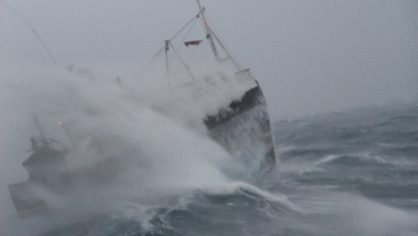16 December 2013
The enhanced role of the European Parliament in fisheries decisions and the new emphasis given to long-term management plans, led many to suppose that the annual December Council, at which TACs and quotas for the coming year are decided, would gradually diminish in significance. This may happen in due course but there are no signs this year that the Council of Ministers is ready yet to take a back seat.
Cod
Despite the strong recovery of the cod stock in the North Sea, cod will again be forced centre stage as the UK and likeminded member states have to fight off effort reductions stipulated by the EU cod management plan. Like a runaway train, the ill-fated plan is careering its way to the European Court as part of a dispute over whether the Council or the European Parliament has jurisdiction over management plans. Even the Commission tacitly admits that it is nonsense to follow a discredited plan that is overdue for amendment but that is what it will do. It will again be down to the Council to limit the damage.
Norway
In the meantime, the Council would normally just be expected to rubber stamp the agreement for a bilateral fisheries agreement with Norway which sets TACs for jointly managed stocks like cod, haddock, whiting, saithe, plaice and herring in the North Sea. However, the EU Norway negotiations have become another victim in the mackerel dispute with Iceland and Faeroes, as Norway has used the opportunity to revisit the issue of its own share. The result is that instead of Council endorsing the deal, or tying up a few loose ends, the whole EU Norway agreement is left up in the air with no date so far for resumed negotiations.
Fishing and TACs
Despite the dramatic reduction in fishing mortality since the year 2000 recorded by ICES, across all the main fisheries in the North East Atlantic, and to which many stocks are responding positively, the Commission’s proposals are for a fair number of reductions which if fully implemented would hurt badly. There is always a question mark over the extent that the Commission ramp up the reductions in their proposal in the expectation that ministers will argue some down. But ministers bear a heavy responsibility to introduce mixed fisheries and discard reduction dimensions to the final decisions, as the science is for the most part provided on a single stock basis.The eye-watering 75% reduction proposed for Area VII haddock reflects a bumper haddock recruitment in 2009 rather than a stock in crisis. In the context of a mixed fishery, it is difficult to see how following this proposal this could lead to anything other than massive discarding. TAC proposals are also being driven down by the drive to reach MSY by 2015; by “precautionary” 20% cuts; and by use-it-or-lose it cuts.
Only a fantasist would believe that quotas should always go up but there is no doubt that there is a significant element of self-inflicted pain in this year’s proposals that will do little for stock recovery, or progress towards discard reduction but will certainly make life more difficult for the industry. It will be ministers’ job to bring a degree of common sense and a degree of democratic control to the process. If ever there was a lesson that cutting TACs for cosmetic reasons will not deliver recovery, it can be seen in the Irish Sea and the West of Scotland where the TAC for cod has been cut year after year to the bone but with absolutely no sign that it has served any purpose.
Single Stock advice in Mixed Fisheries
TAC decisions are always a trade-off between what it is safe to harvest next year without jeopardising the future. But given that most ICES advice is provided on a single-stock basis, under the current arrangements ministers have a particular responsibility to balance mixed fishery issues and discard reduction with continued progress towards high yield fisheries. It is important for commentators to remember this when simplistically comparing minister’s decisions with the Commission’s proposals or ICES advice.
NFFO
An NFFO team, reflecting the different regions and fleets in our diverse membership, will as usual, attend the Council. This involves a pre-council briefing with the Minister George Eustice, and his officials, in which the industry’s priorities and the UK’s priorities are aligned as far as possible. Good communications right through the Council process are vitally important to deal with issues as they arise. Finally, in the early hours of Wednesday morning, a deal will be struck which will shape the fortunes of the industry for another year.

